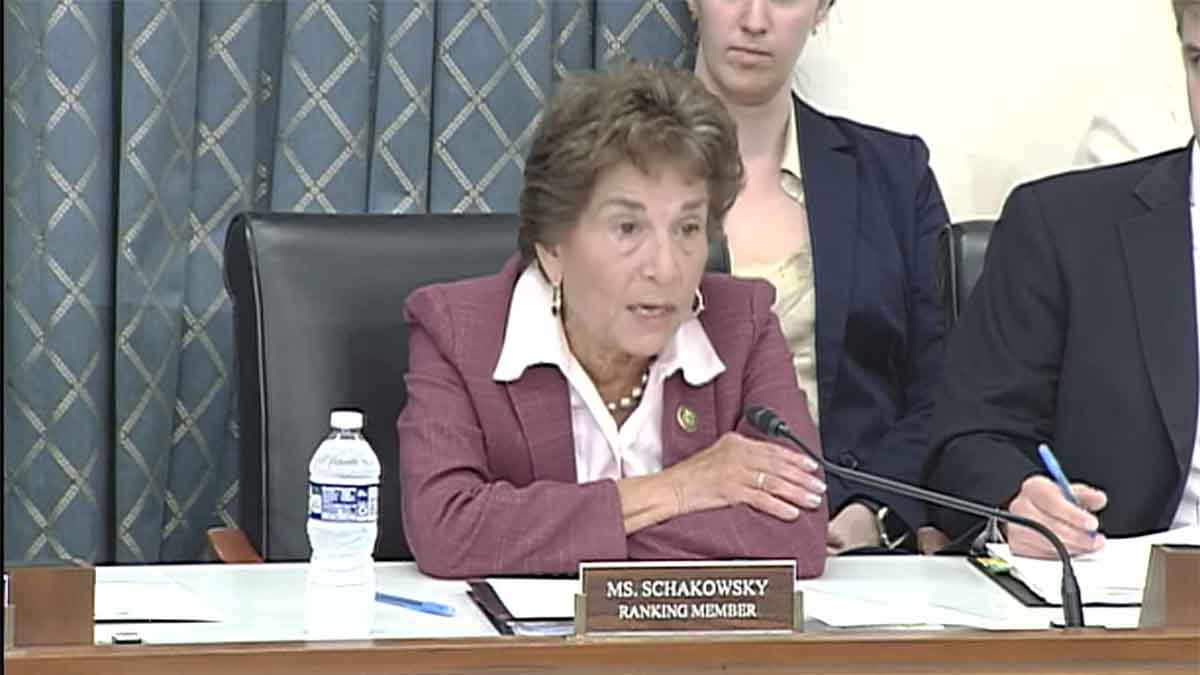Ticketing took center stage this week at the House of Representatives, as proposed legislation was discussed at a meeting of the Energy and Commerce Committee’s Subcommittee on Innovation, Data, and Commerce. Bills discussed included the proposed TICKET Act, which would bring “all-in” ticket pricing requirements at the federal level, as well as the much more comprehensive BOSS and SWIFT Act. Also discussed is a proposed overhaul of so-called “speculative” ticketing.
“One of the great indignities American consumers face is buying a ticket to a live event like a concert or a ballgame,” wrote Rep. Bill Pascrell (D-NJ) in testimony issued (and peppered with Taylor Swift lyric and song title references) supporting the BOSS and SWIFT legislation, which he co-authored with committee member and fellow New Jersey member of Congress Frank Pallone, Jr. “Fans all know the frustration All Too Well. Often, consumers are in line past Midnights trying to buy tickets, but end up being sold out.”
We are starting up our hearing looking at my Boss and Swift Act to regulate live events ticketing and crackdown on Ticketmaster. I’m excited — are you? Let’s Go! pic.twitter.com/Xs9VuFOWOM
— Bill Pascrell, Jr. 🇺🇸🇺🇦 (@BillPascrell) September 27, 2023
“No consumer should have to auction a kidney to get a pair of concert tickets,” the testimony continued. “We should not tolerate it.”
BOSS and SWIFT Act, HR3360, has been around in various forms for more than a decade, as Rep. Pascrell has pushed for reform as one of the major critics of the Live Nation/Ticketmaster “monopoly” (his words) since before the two companies merged. Among its reforms are mandatory “all-in” ticket prices across the country, clear disclosure on the total number of tickets offered for sale vs. held back to create the illusion of scarcity and drive up prices by event promoters, protections on consumer ticket transfer rights, and tighter regulations surrounding the disclosure of “speculative” ticket listings and protecting consumers from sellers who try to deliver tickets different from those promised during the sales process.
National Consumers League Vice President John Breyault also provided testimony at the hearing in favor of BOSS and SWIFT’s reforms, indicating his organization’s stance that “There Has Never Been a Better Time to Reform Live Event Ticketing.”
HR 3660, Breyault says, “is the single most comprehensive pro-fan and pro-competition ticketing legislation before congress.” He outlined the multiple ways that it would do so in his testimony (available in full here), and how they would help “protect consumers from Ticketmaster’s anti-competitive efforts to extend its monopoly into the secondary ticket market.”
The TICKET Act (HR 3950), which was introduced by Sen. Ted Cruz in the Senate and is co-sponsored in the House by Rep. Gus Bilirakis (R-FL) and Janice Schakowsky (D-IL) – who happen to be on the subcommittee holding Wednesday’s hearing, also drew support from Breyault.
Speaking on behalf of the so-called Fix The Tix coalition (and, by extension, the interests of promoters like Live Nation Entertainment), longtime venue executive David Touhey offered support for parts of all three pieces of proposed legislation, though with specific caveats. Claiming that “not one bill goes far enough,” Tuohy pushed for additional restrictions on ticket resale, including an effort at claiming that forcing event operators to disclose the actual number of tickets vs. the number “held-back” from sale to be sold at a later date would serve only to empower ticket resellers rather than consumers.
He argued such a provision, rather than allowing consumers to truly understand that claims of “unprecedented demand” and “immediate sellouts” are typically baldly false and used specifically as marketing tools to promote the fear of missing out and stimulate purchase at inflated “dynamic” and “platinum” ticket prices, would “remove the flexibility venues and artists need to design shows and add or remove seats based on how well a show is selling,” according to his testimony.
The testimony submitted by Touhey also called for a ban on resale companies from being able to use artist names or images in their websites, arguing that the act of using an artist or venue name in a listing for tickets to see that artist at that venue constitute a deceptive practice, even if the website clearly discloses that it is not the box office or venue website.
Ticketing-related bills were among many under consideration at the hearing, which can be viewed in its entirety on the subcommittee’s YouTube channel here.



